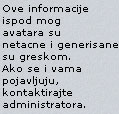|
Kaspersky Lab, a leading developer of secure content management
solutions, has detected a new version of Sober,
Email-Worm.Win32.Sober.q. It was downloaded to machines which had been
infected by Sober.p, and is effectively a modification of Sober.q.
However it is unable to replicate, but instead sends right wing spam to
addresses found on the victim machine.
Sober.q copies itself to the Windows system directory, and changes the
system registry so that the worm will be activated each time Windows is
rebooted on the victim machine. It also drops a number of other files to
the infected system. Sober.q harvests email addresses from the infected
computer, saves these addresses, and then sends spam messages to the
addresses harvested, except for addresses which appear to belong to
antivirus vendors and software developers.
The worm also drops a file which contains a message from the author:
"Ich bin immer noch kein Spammer! Aber sollte vielleicht einer werden 
In diesem Sinne" (I'm not a spammer yet! But maybe I'll become one : )
This file also contains links to articles published on the Internet
stating that Sober is being used to create botnets - networks of
infected machines, which can then be used to send spam.
Rather than replicating, Sober.q sends spam in both German and English.
German language messages are sent to recipients in .de, .ch, .at, .li,
and .gmx domains. The messages contain right wing texts, and links to
right wing sites. All other recipients receive messages in English -
however, the contents are still politically right wing. The worm
contains several dozen possible message versions. Although the sites
contain material which may be offensive to readers, all the addresses
are genuine, and there is no malware on these sites which could infect a
machine being used to view the sites.
Similar to previous version of Sober, Sober.q connects to a number of
NTP servers and monitors the system time and date on the infected
machine. Once the system date passes 11th May, Sober.q will attempt to
terminate a number of processes (microsoftanti, gcas, gcip,
giantanti, inetupd, nod32kui, nod32, fxsob, s-t-i-n-g, hijack,
sober ) which will make it harder to remove the worm.
Kaspersky Anti-Virus databases were updated with protection against
Sober.q shortly after the new worm was detected. A full description is
available in the Kaspersky Virus Encyclopaedia.
Kaspersky Labs Corporate Communications
|
















